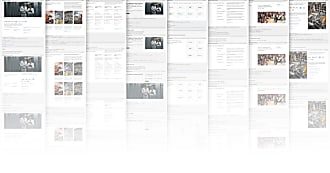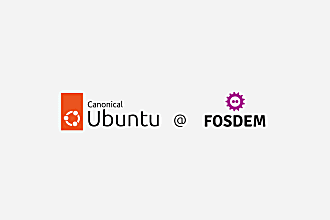toto
on 8 February 2021

For the past 4 years I have participated in FOSDEM, a conference about free and open source software for developers. I love this event. It’s a welcome opportunity to see friends, watch great talks and drink excellent Belgium beer.
Unfortunately, this year it was a remote event. The event was managed via matrix, a decentralized communication system. There were a few network issues at the beginning, as it had to deal with more than 11,000 people simultaneously, but in general it went pretty smoothly.
I mostly participated in the “community”, “open source design” and “web performance” rooms. Here is a little summary of what a saw. Hope there is stuff that might trigger your curiosity.
Tools and Concepts for Successfully Open Sourcing Your Project
Interesting talk with tips and tricks for open-sourcing your project. There were interesting questions like: why would you open-source it? Are you ready to maintain it? Etc…
Eleventy is a simpler static site generator
This presentation is about the static site generator Eleventy. The presenter loves the framework and was mostly doing a high level presentation of the framework.
As a side note, the web and design team at Canonical started using Eleventy for some of our static sites.
Accessible code editing with CodeMirror 6
A talk about the project CodeMirror, a code editor for your browser in JS. The main developer refactored his project completely. He presented the new features available in version 6. It was interesting to know that he was mostly the only provider of this type of service for a while and never took the time to really improve and modernize the code until in the last years where more and more libraries started to provide the same features.
Communications Hacks
This was one of my favorite talks. The presenter discussed the challenges of working in an international organization, especially regarding communication. The two main points that she discussed were cultural communication and the giving and receiving of feedback in a multicultural company.
The first part about communications was mostly presenting the work of Erin Meyer from her book The Culture Map. This book presents the different ways and challenges of communicating between cultures.
The second part of the talk was about how to give and receive feedback. She gave some tips and tricks like the importance of taking time to process feedback, remembering to consider the context of feedback etc. She also presented the different ways and types of person that you can face in giving and receiving feedback.
It’s hard to summarize this talk without going into all the details, I strongly recommend watching it once the video is available.
Cross-Culture Collaboration Guide at GitLab
Making Documentation a First-class Citizen in Open Source Projects
This was a talk about documentation and a reminder that coders are not the only contributors to open-source projects. The approach that the presenter took was to put developers and documentation writers at the same level when looking at contributions to a project. This talk wasn’t giving tips on how to write docs but instead how to praise documentation writers.
It’s important to remember that we shouldn’t forget to document how to contribute to documentation!
Mental health and free software
This was a great talk about mental health in the free software community. The presenter is a developer that joined Element and experienced imposter syndrome in a community of very opinionated people. This led him to over work and burn out. In this talk he presents what he did and how he changed his approach to facing the dev world. He gave behavioral feedback to contributors, community members and managers.
Something that is hard to remember sometimes is: don’t over work, go out, meditate, play, try to do other stuff that will make you think of things other than work. This will make your mind more clear and be more efficient.
Using the Firefox Profiler for web performance analysis
This talk was presented by one of the developers of the new Firefox Profiler. This tool allows developers to share recorded profiles to help debug issues. The tool records every execution that your browser does when loading and navigating in a web page. The presenter explained every section of the tool and did a demo.
It looks quite cool. You can easily record your profile with a simple button, upload it and share it with others. The tool is not yet integrated with the dev tools of Firefox but they are planning to do so. More to see soon, but definitely something that I will try!
Penpot, design freedom for teams
Penpot V1 was released recently. It is an open-source alternative for tools like Sketch or Figma. The project is fully based on open standards: SVG and CSS. It is interesting to see how the team worked hard on the first impression and how to be performant very fast on first use of the tool. The current project released is not only about doing sketches but also having team collaboration.
The presentation ended with a demo on how to use Penpot and redesign the FOSDEM website.
They are calling for people to try it, give feedback to the team and discuss with them about features that would be nice to have.
Building a greener web
The talk was around different actions that the green web foundation is working on to make a greener web. The presenter showed different projects that he worked on: sitespeed (that shows a green report now) or a project where the servers were powered differently depending on the weather.
Practical advice for using Mypy
This presentation was about Mypy which is a static type checker for Python. The presenter showed a few examples of syntax and the error/warning messages Mypy throws. He showed some tips and tricks to manage immutable types in Python. For example: Use Segment instead of lists.
WebPageTest Update and License discussion
Catchpoint acquired WebPageTest last year. The maintainer came to explain the future evolution of the project and the license update.
Webpage will now have 2 branches. One Apache licensed branch which will be the community branch, where the maintainer will merge community contributions. The second one will be their commercial branch using the Poliform license. The project will evolve only on the Poliform branch.
In terms of new features, WebPageTest is landing the Core Web Vitals in their analytics with some nice visual features to show Cumulative Layout Shift (CLS) and Largest Contentful Paint (LCP). They will also upgrade the way they manage browsers and will integrate a fleet of Apple M1 silicon to be able to emulate Safari as closely as possible. Finally they are moving all the servers/phones/etc away from the presenter’s basement following the acquisition.
Conclusion
FOSDEM is not only about talks, it’s also about meeting people and seeing friends. I personally enjoyed staying in the coffee channel to see what people were doing in their remote conference, between coffee and sharing snow updates.
Thanks to the volunteers and the people that make FOSDEM what it is. Stay safe and see you in 2022.
Have I said something wrong? Don’t hesitate to let me know on twitter @totostache.



